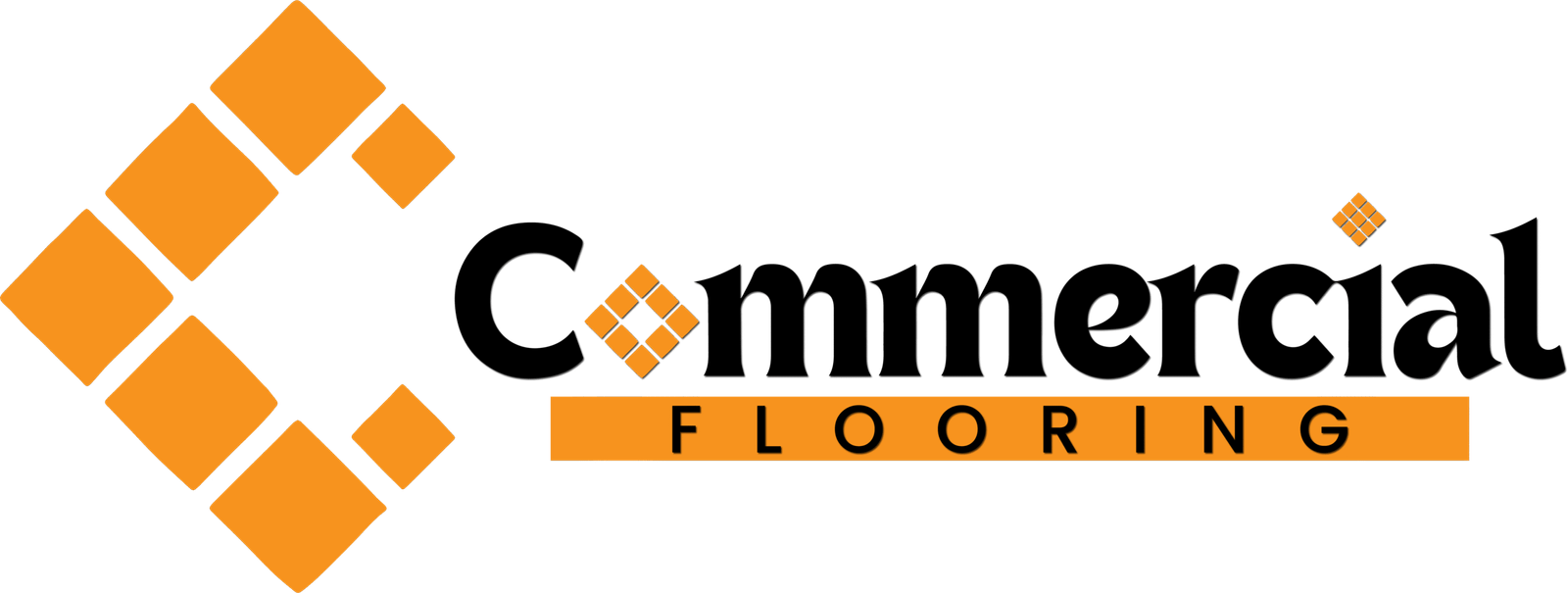When selecting the best flooring, vinyl vs epoxy for your commercial space, two names often come up—vinyl and epoxy during flooring. Both materials are widely used across various industries due to their durability, performance, and aesthetic appeal. However, they serve different purposes and are best suited for different environments for the floor.
In this blog, we’ll break down the key differences between vinyl flooring and epoxy flooring. comparing factors like design, strength, maintenance, cost, and more, so we can confidently choose the right option for your business.
1. Appearance and Design Flexibility

Vinyl Flooring
Vinyl is available in a broad range of styles and colors. From realistic wood textures to stone or abstract designs, vinyl can suit just about any interior. For businesses in retail, hospitality, or offices where visual appeal matters, vinyl offers design flexibility that complements branding and decor.
Epoxy Flooring
Epoxy floors are known for their glossy, seamless finish. Though not as versatile in mimicking natural materials like vinyl, epoxy can be customized with color flakes, metallic pigments, patterns, and even logos. It gives an industrial, clean, and professional look—great for showrooms, commercial kitchens, or warehouses.
✅ Verdict: Choose vinyl for warmer, aesthetic designs. Go with epoxy for a sleek, modern industrial look.
2. Durability and Performance
Vinyl Flooring
Vinyl is durable for everyday commercial use. It’s water-resistant, scratch-resistant, and generally holds up well in moderate foot traffic environments. However, it’s not designed to handle heavy machinery, constant forklift movement, or harsh chemicals.
Epoxy Flooring
Epoxy is one of the most durable flooring materials available. It withstands heavy loads, oil spills, chemical exposure, and impact. That’s why it’s the go-to option for garages, factories, warehouses, and other high-impact workspaces.
✅ Verdict: Epoxy is better for heavy-duty environments, while vinyl works best in medium-traffic, customer-facing spaces.
3. Installation Process and Downtime
Vinyl Flooring
Vinyl is relatively quick to install. In many cases, it can be laid over existing flooring with minimal preparation. This makes it ideal for businesses that want a fast flooring solution with minimal downtime.
Epoxy Flooring
Epoxy takes more time. The process involves surface preparation (often grinding or cleaning concrete), mixing and applying multiple coats, and allowing curing time. Depending on conditions, this could take 2–5 days before the floor is ready for use.
✅ Verdict: Choose vinyl for quicker installation. Epoxy requires more prep but delivers a stronger bond.
4. Maintenance and Cleaning
Vinyl Flooring
Vinyl is low-maintenance. It only needs regular sweeping and occasional mopping with mild cleaners. It doesn’t require polishing or sealing.
Epoxy Flooring
Epoxy is also easy to maintain, especially in industrial settings. It resists stains and is non-porous, making spills easy to clean. However, high-gloss epoxy might show scratches over time, and you may need re-coating every few years for high-traffic areas.
✅ Verdict: Both are easy to clean, but vinyl requires slightly less long-term upkeep.
5. Cost and Budget Planning
Vinyl Flooring
Vinyl is generally more affordable upfront, both in terms of material and labor. It’s a practical option for small businesses or budget-conscious renovations.
Epoxy Flooring
Epoxy costs more due to the multi-step installation process and materials involved. However, its durability means fewer repairs or replacements over time, offering long-term value.
✅ Verdict: Vinyl for upfront savings. Epoxy for durability and lower replacement costs.
6. Ideal Use Cases by Industry
Still unsure? Here’s where each flooring type works best:
Vinyl is ideal for:
- Retail stores
- Office spaces
- Clinics and salons
- Hospitality (restaurants, hotels, cafes)
- Education centers or classrooms
Epoxy is ideal for:
- Warehouses and factories
- Commercial garages
- Hospitals and labs
- Commercial kitchens
- Automotive and aerospace industries
7. Environmental and Safety Considerations
Vinyl Flooring
Some vinyl products may release VOCs (volatile organic compounds), especially lower-quality ones. However, many manufacturers now offer low-VOC or eco-friendly options. It’s also softer underfoot compared to epoxy, making it safer for long-standing workers.
Epoxy Flooring
Epoxy is highly chemical-resistant and seals the concrete, preventing mold and bacterial growth. During installation, some types may emit strong odors, but after curing, it’s considered safe and hygienic.
✅ Verdict: Both have improved their environmental impact. Choose certified low-VOC products when possible.
Final Verdict: Which One Should You Choose?
Choosing between vinyl and epoxy flooring depends on your business’s unique needs:
- Choose Vinyl Flooring if you’re looking for design flexibility, a quick and affordable installation, and a soft surface for general commercial use. It’s perfect for businesses that prioritize comfort and aesthetics.
- Choose Epoxy Flooring if your operations demand a tough, chemical-resistant surface that can handle heavy traffic, machinery, or spills. It’s the better investment for industrial or high-performance settings.
Need Help Deciding?
At Commercial Flooring, we offer expert consultation and installation services for both vinyl and epoxy flooring across a wide range of industries. Whether you’re renovating a store or upgrading an industrial facility, we’re here to help you choose the right floor that fits your space, budget, and purpose.
